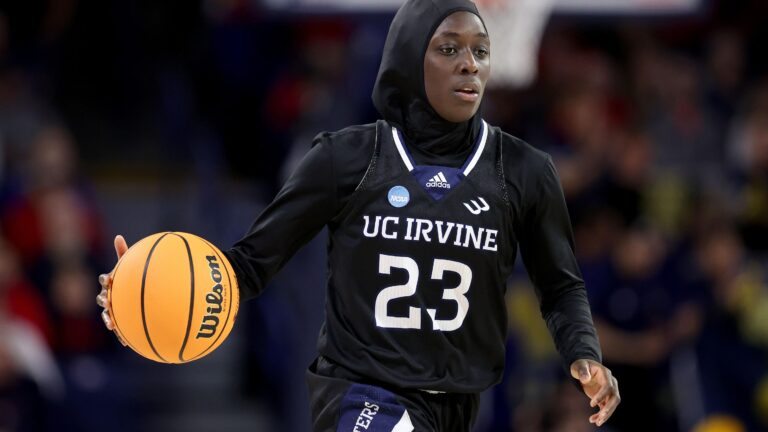United Nations human rights experts have condemned FranceŌĆÖs bans on the hijab in sports as ŌĆ£discriminatory,ŌĆØ intensifying the international debate over secularism, religious freedom, and inclusion. The French policies, which prohibit athletes from wearing the Islamic headscarf during competitions, have sparked widespread criticism from advocacy groups and the global community who argue that the restrictions marginalize Muslim women and violate fundamental rights. This controversy shines a spotlight on the ongoing clash between FranceŌĆÖs strict secular values and the principles of religious expression on the world stage.
FranceŌĆÖs Hijab Bans in Sports Criticized as Violation of Religious Freedom
United Nations human rights experts have sharply criticized recent legislative measures in France that prohibit the wearing of hijabs in sporting events. Describing these policies as inherently discriminatory, UN authorities argue that such restrictions encroach upon the fundamental right to freedom of religion and expression. They emphasize that sports should serve as inclusive platforms where athletes of diverse faiths can participate without being forced to choose between their beliefs and their athletic aspirations.
The backlash intensifies amid concerns that these bans disproportionately affect Muslim women, effectively marginalizing them from public sporting life. Critics highlight several key issues:
- Violation of religious freedoms protected under international human rights law.
- Negative impact on gender equality, limiting opportunities for Muslim female athletes.
- Potential rise in social exclusion and stigmatization within the broader community.
| Aspect | UN Experts’ Observation |
|---|---|
| Religious Freedom | Significantly compromised |
| Gender Equality | Negatively impacted |
| Social Inclusion | Undermined |
UN Experts Highlight Discriminatory Impact on Muslim Female Athletes
UN human rights experts have condemned recent French regulations that prohibit Muslim women from wearing hijabs during sports competitions, labeling such measures as inherently discriminatory. According to the experts, these bans limit the ability of female athletes to freely practice their religion while participating in sports, undermining principles of equality and inclusion. They stressed that forcing athletes to choose between their faith and their passion for sports not only violates international human rights standards but also marginalizes an already underrepresented group in athletics.
The experts highlighted several key concerns regarding this policy:
- Restriction on religious freedom: Muslim female athletes feel pressured to either sacrifice their beliefs or their sporting careers.
- Impact on participation rates: The bans may decrease the presence of Muslim women in competitive sports, limiting diversity.
- Broader social implications: Such policies risk reinforcing stereotypes and deepening exclusion within communities.
| Issue | Impact | UN ExpertsŌĆÖ Recommendation |
|---|---|---|
| Hijab bans in sports | Limits participation of Muslim female athletes | Revocation of discriminatory regulations |
| Religious freedom infringement | Violation of international human rights | Protection of athletes’ right to express beliefs |
| Gender and religious discrimination | Marginalization and exclusion in sports | Promotion of inclusive policies and awareness |
Calls for Inclusive Policies to Ensure Equal Participation in Sports
International human rights experts have highlighted the urgent need for policies that promote inclusion and respect for cultural diversity within the sporting arena. The recent enforcement of hijab bans in France has sparked widespread concern, with advocates arguing that such measures unjustly marginalize Muslim athletes and restrict their right to participate freely in sports. Emphasizing equality, these experts call on sports governing bodies and national authorities to reconsider exclusionary regulations and adopt frameworks that safeguard the dignity and identity of all competitors.
Key demands from the global community include:
- The removal of discriminatory dress codes that target religious attire.
- Implementation of clear guidelines ensuring equal access to sports for athletes of diverse backgrounds.
- Educational campaigns to combat stigma and promote acceptance within sports institutions.
- Collaboration between policymakers, sports federations, and community leaders to develop inclusive strategies.
| Stakeholder | Role in Inclusion | Possible Actions |
|---|---|---|
| Government | Legislation and Oversight | Review policies and ensure anti-discrimination laws are enforced |
| Sports Federations | Regulation and Enforcement | Amend dress codes and promote diversity in leadership |
| Community Groups | Advocacy and Awareness | Organize educational programs and support affected athletes |
Recommendations for France to Align Sports Regulations with International Human Rights Standards
To foster an inclusive sporting environment that respects the dignity and rights of all athletes, French authorities should reconsider the current bans on religious symbols such as the hijab. This involves a comprehensive review of existing regulations to ensure they do not disproportionately affect female Muslim athletes or other minority groups. Implementing clear anti-discrimination policies that explicitly protect freedom of religion and expression within sports federations will be crucial to align with international human rights standards.
Additionally, sports governing bodies in France can benefit from adopting best practices observed globally. These include:
- Providing diversity training and awareness programs for coaches and officials
- Engaging with affected communities and athletes to incorporate their perspectives in policy-making
- Establishing transparent complaint and redress mechanisms to handle discrimination grievances
- Collaborating with international human rights organizations for monitoring and guidance
| Recommended Action | Expected Outcome |
|---|---|
| Policy reform to lift hijab bans | Increased participation and fairness |
| Inclusive training programs | Heightened awareness of cultural diversity |
| Community consultations | Enhanced trust and legitimacy |
| Robust grievance systems | Prompt resolution of discrimination cases |
Final Thoughts
As the debate over FranceŌĆÖs hijab bans in sports continues, UN experts have firmly criticized the policy as discriminatory, underscoring concerns about its impact on religious freedom and inclusivity. The controversy highlights the broader tensions in French society over secularism and minority rights, raising urgent questions about how to balance national values with the rights of diverse communities. With calls for reassessment growing louder, the issue remains a focal point in discussions on equality and human rights both within France and on the international stage.




